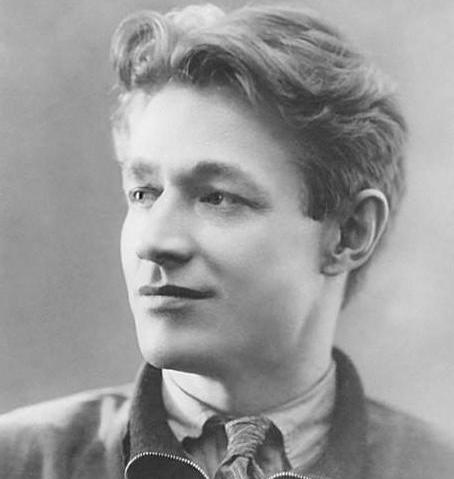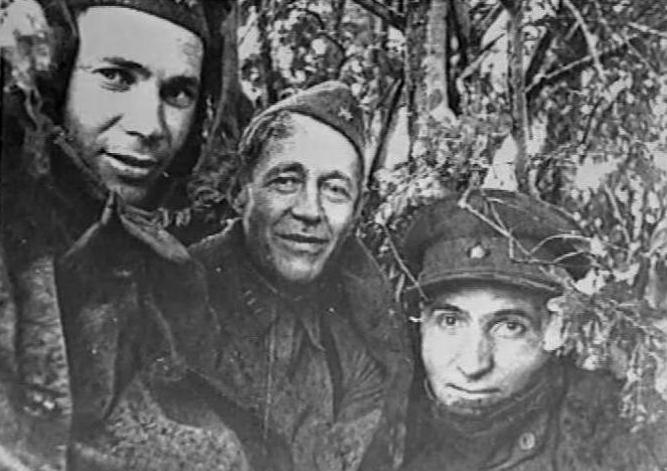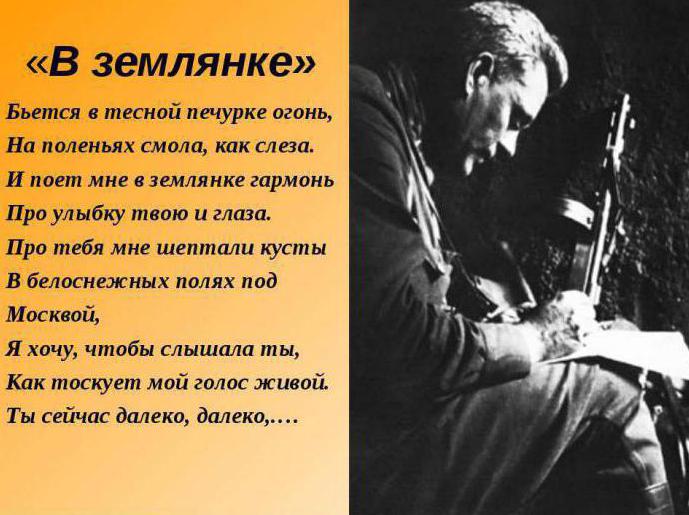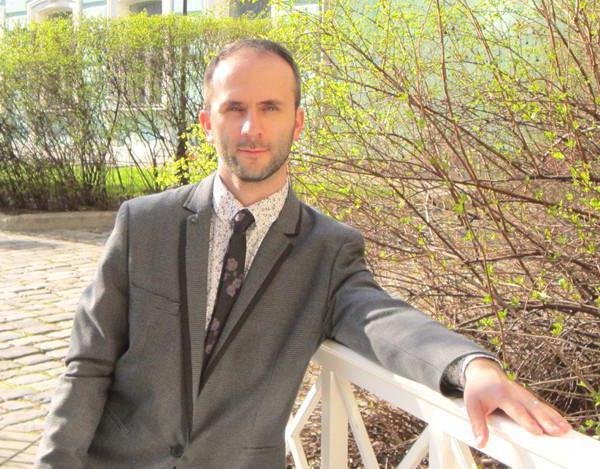The poet Alexei Surkov is the pride of the land of Yaroslavl
In Yaroslavl, a survey was conducted on whether residentsthe famous song "In the dugout". People of different ages took the text with pleasure, almost without mistaking the words. But to name the author could not all. The Soviet poet Alexei Surkov, whose biography is forever associated with the Yaroslavl region, is the author of well-known lines that came out from under his pen at the beginning of the Great Patriotic War. What is known about this outstanding man?

"In people"
Born before the revolution (1.10.1899) in a small village Serednevo (Rybinsk district of the Yaroslavl province) in a peasant family, Alexei Surkov began training in a local school, absorbing the beauty of nature and the simplicity of rural life. Having shown a craving for study, at 12 he goes to St. Petersburg, where he has to live in a master's house and work part-time. This residence was called "in people", but it allowed a teenager to read newspapers and develop. The work biography began with the work of a student in a printing house, a furniture store, carpentry workshops. He met the revolution in the commercial port, where he worked as a weigher.
In 1918, "Krasnaya Gazeta" publishes the poems of a certainA. Gutuevsky. Such a pseudonym was first chosen for himself by Alexei Surkov, a photo of which in those years can be seen in the article. It was his first feather test. As an eighteen-year-old boy, he enlisted in the ranks of the Red Army, serving as a machine gunner and equestrian reconnaissance until 1922.

"Chant"
In peacetime, the future poet returns to the smallhomeland, where engaged in enlightenment. Until 1924, in a neighboring village, he worked in the hut-reading room, becoming the village journalist of the local uyezd newspaper. The journalist's profession soon becomes the main one for A. Surkov. Already in 1924, the newspaper Pravda published his new poems, and in 1925 he became a party to the Congress of Writers of the province. In the same year, after joining the CPSU (B.), Alexei Surkov is on Komsomol work, in parallel being the correspondent of the newspaper "Northern Komsomolets", newly established in the province. For three years (1926-1928) he headed it as the editor-in-chief, increasing the circulation by 2 times and creating a "Literary Corner" where novice poets and prose writers could be printed.
In May 1928, he was delegated to Moscow for the first congresswriters, after which he no longer returns to the Yaroslavl region, being elected to RAPP. The beginning of this poetic creativity was laid by the first collection published in 1930. It was called "Chant". Poems were distinguished by political acuity and a sense of patriotism, which was very in demand. In these years the poet Aleksey Surkov was truly born.
Biography: the master's family words
Becoming a frequent visitor of literary encounters, the poetgets acquainted with Sofya Antonovna Krevs, his future wife. The couple is born two children: son Alexei born in 1928. and daughter Natalia born in 1938. During the war years, the family will be evacuated to Chistopol, where Alexei Surkov will write his letters from the front. In the future, the daughter will choose for himself the profession of a journalist, doing musicology. The son will become a military engineer-colonel of the Air Force.
The 30s are marked by the fact that A. Surkov needs to fill in the lack of education: he will not only graduate from the Institute of Red Professors, but also defends his thesis, becoming a teacher of the Literary Institute. He will not leave editorial work either, cooperating with M. Gorky in Literaturnaya ucobe, a journal of that time. Working in LOCAF, he continues to write poetry and songs about the heroes of the Civil War: "The Rovesniki", "The Offensive", "The Motherland of the Courageous." Some works become songs: "Chapaevskaya", "Konarmeiskaya".

Military Correspondent
"Battle onslaught", "Red Army truth", ""Red Star" - those publications in which since 1939 military commissar Alexei Surkov was printed. The poet participated in two military conflicts on the eve of the Great Patriotic War: the Finnish campaign and a campaign in Western Belorussia. Despite the unprestigious age, from the first day of the war he went to the front, having risen in 1943 to the rank of lieutenant-colonel. Here he will meet with many poets of the war years. It is he who Konstantin Simonov will dedicate the famous lines: "Do you remember, Alesha, the roads of Smolensk ...".
As the editor-in-chief of the New World, hepublishes poems, feuilletons and songs of heroic time. He will publish several poetic collections: "Poems about hate", "Offensive", "Soldier's Heart". In 1942, he almost died under Rzhev, writing later piercing lines:
"And the bullets are unharmed, and we do not burn heat,
I pass the edge of the fire.
Apparently, the mother exorbitant suffering her
I bought me from death ... "
But the most popular in his work will be songs. Among them: "The Song of the Bold", "The Song of the Defenders of Moscow" and, of course, the famous "Zemlyanka".

History of the birth of "Zemlyanka"
The song was born in November 1942 in the vicinityIstra (the village of Kashino, Moscow region), where he had to leave the environment through the minefield. Then he really felt that only a few steps to death. When the danger was over, the whole greatcoat was shrapnel. Already in Moscow he had the lines of a famous poem sent to his wife Chistopol. When edition appeared composer Konstantin sheets, Alexei Surkov gave him a hand-written lines, and a week later a song first performed by his friend Mikhail Savin.
With her first appearance, she immediately left forFront, becoming the favorite work of soldiers. It was performed by Lydia Ruslanova, and at first even released records with a record. But then they were completely destroyed, for the political workers saw decadence in the lines of the poem and demanded to change the words. But the song has already gone to the people. There is evidence that the soldiers went into battle, shouting: "Sing, harmonica, blizzard to spite!" A monument to the famous song near the village of Kashino was erected. This is a true recognition of the author, who was awarded the State Prize for the cycle of works in 1946.

Last years
After the war, Alexei Surkov, whose biographybecame associated with party and state activities, as editor-in-chief of Ogonyok and rector of the Literary Institute, he did a lot to discover new talents. He published Anna Akhmatova, defending her name before Stalin. At the same time, being a convinced communist, he does not recognize the works of B. Pasternak, he will oppose A. Solzhenitsyn and A. Sakharov. The poet will head the Union of Writers of the USSR for several years.
In 1969, the government will celebrate his contribution to the Star of Hero for his labor achievements. After the death of a man in 1983, for many, he will remain a remarkable poet who glorified the land of Yaroslavl.
</ p>




